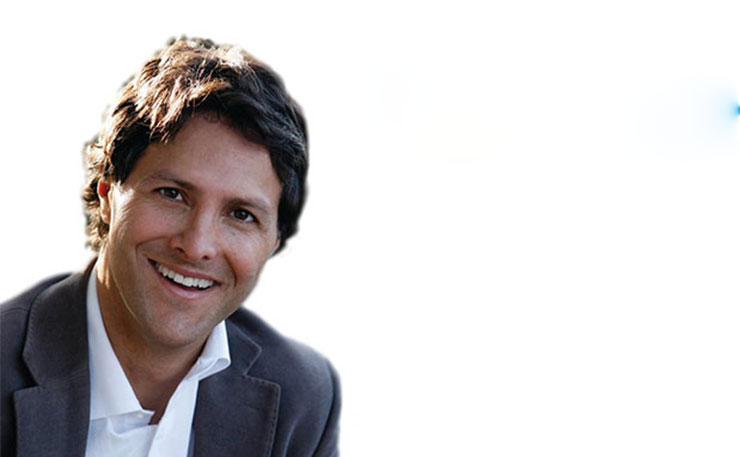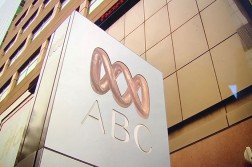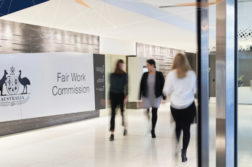In the second story in a two part series, Michael Brull investigates a NSW Government move that will virtually guarantee school cleaners in the nation’s largest state get ripped off by unscrupulous contractors.
“As United Voice sets out, the Andrews Government needs to adopt the NSW model, which slashes contract numbers to several providers competing for regional contracts to allow effective oversight.” – The Herald Sun… before the NSW government started changing its model.
As I noted in my previous article, school cleaners in NSW have had employment guarantees since 1994. The state government, however, has decided to scrap those guarantees in the system they’re beginning from mid-2018. The plan is to sell cleaning services to the companies that offer the cheapest prices, which they subcontract out to less regulated smaller companies.
7000 school cleaners in NSW have to reapply for their own jobs. Some may lose their jobs. Others who are rehired may find that the entitlements they earned through years of hard work, like sick leave, have disappeared.
The plan is for cleaners to be paid on the basis of work done – like meters covered – rather than hours worked. Their union has warned that this proposal threatens to increase stress and job insecurity of cleaners, who already struggle to get their work done in the hours of the day.
Cleaners are worried that the plan will reduce hours of work, which will make it hard for cleaners to make ends meet. The award wage for cleaners is some $19.53 an hour.
Yet the most shocking part of all this is that this proposed scheme has already been tried. In Victoria. It was a disaster.
As the Sydney Morning Herald editorialised in August, “A similar approach to contracting school cleaning services that was tried in Victoria is now being rolled back after it emerged that many workers were routinely underpaid.”
This somewhat understates matters. The Victorian approach was a scandal.
Victoria’s experience of contracting and subcontracting school cleaners
In November 2016, Fairfax started covering the exploitation of school cleaners in Victoria. Journalist Nicholas Toscano began his report by noting that, “A network of Victorian public schools has been forced to sever ties with a cleaning contractor amid allegations that school cleaners have been underpaid.”
The company, Ramos Cleaning Services, was “stripped of 17 contracts for the cleaning of government-run schools”. The government banned the company on May 5 from working at government schools. The Victorian Education Department explained that the “contract was terminated after it wrote to us indicating it had breached employment regulations, and company director Alejandro Ramos admitting to a number of school principals [that]staff had been underpaid”.
The union for the cleaners, United Voice, made a detailed submission to the department. Toscano reported that “Pay slips, time sheets and contracts from Ramos workers showed many of them were receiving a flat rate between $20 and $22 an hour, but were missing out on penalty rates and other entitlements, meaning their overall take-home pay was often below the award.”
Furthermore, there were “individual flexibility agreements” used as a compulsory requirement of employment, including “substandard conditions” and restricting “new employees’ sick leave to just five days a year.”
Victorian United Voice secretary Jess Walsh said Victoria had the “worst school cleaning system in the nation”.
In an extensive follow up report, Toscano’s reporting was even more damning. He found that school cleaners were “routinely underpaid”. His interviews with cleaning staff at public schools found that “most” received “just $600 or $700 for five days’ work,” though they are “habitually expected to put in much longer hours in unpaid overtime.” They “reported having to work for free on a daily or weekly basis. To get the job done, they stay late into the evenings or have to come back on weekends, meaning their overall hourly pay invariably drops far below the Cleaning Services Award’s legal minimum of $18 an hour.”
For example, Toscano described a 57-year-old cleaner, who works at least 42.75 hours every week, but “only gets paid for about 20 of them. His hourly rate of $24 becomes just $11.”
The anonymous cleaner explained that he’d “have to be running to be able to do the work in the time they are telling me to do it”. At one school, he’s supposed to work from 3.30am to 5am, then for the afternoon shift from 3.15pm to 6pm. However, to finish all his work “he has to stay back at the first school more than an hour after his morning shift is supposed to end”.
Then he goes “straight to the other school to put in 45 minutes of work he couldn’t finish from the previous night.” At 9 am, “he goes home to try to catch some sleep before the afternoon shift begins.” Once the week is over, he goes back to both schools on the weekend for another five hours of work in each school. He still has to “empty all the outside wheelie bins and clean and dust down every table in the classrooms.” He needs that extra time to fit in all of his extra work. If he didn’t come in on the weekends, those tasks “don’t get done at all, and the company loses the contract and I lose my job.”
In 2016, United Voice surveyed public school cleaners. Toscano reported that the survey found that 60 per cent “were receiving below-award pay and conditions. There were ‘systemic award breaches’ identified at nine out of 14 schools visited in just one week”. Secretary Jess Walsh said the union was aware of cases where cleaners were being illegally subcontracted for only $8 per hour, paid in cash.
The Fair Work Ombudsman found that “the cleaning industry was plagued by cases of underpayment and unlawful contracting”, according to Toscano. Ombudsman Natalie James said there was a “race to the bottom” mentality, leading to what Toscano paraphrased as “unsustainable business models, irresponsible contracting and unreasonably low contract prices”. The Ombudsman’s office said that cleaning staff were often “vulnerable workers at the bottom of complex supply chains”.
The reason this was such a systemic issue was because school councils, dealing with already tight budgets, generally accepted the cheapest contracts to clean their schools, and companies had to outbid each other by cutting costs, which inevitably wound up with greater exploitation of cleaners.
The Building Services Contractors Association of Australia, a peak body, complained to Toscano about the environment created by this system.
“Our members are telling us that in government schools, reputable companies are being undercut on the price. It’s becoming impossible for reputable companies who meet all their legal obligations to the schools and to the cleaners to compete.”
The union similarly observed that, “A vicious price war has intensified in government-school cleaning. Fly-by-night operators have flooded the market and pushed out reputable contractors. Many cleaners… feel exploited and abused but are too fearful of losing their jobs to speak out.”
For example, a Salvador couple were paid to work three hours a day, but said that they “always had to stay much longer”. Despite all the unpaid work they did, their employer still lost the contract, because “another company came in and quoted a price that was 30 per cent cheaper”. The couple were both fired.
In May this year, the ABC ran its own hard hitting exposé on the exploitation of school cleaners. Damian McIver reported on a union investigation that found that “Cleaners working at Victorian state schools are being underpaid and denied basic entitlements in an industry where ‘fear and intimidation is endemic”.
The study found that cleaners were being underpaid an average of $6000 each year, up to $14,000. Consider how much that is, given their hourly rate of some $18 per hour. If one assumes they were paid an average $20 per hour, that’s 300 hours of unpaid work each year on average.
The underpayment involved a “complicated network of sub-contractors”. Cleaners were afraid of being fired if they spoke out against their exploitation. One cleaner explained that he accepted being paid $15 per hour, as he has “university expenses, living expenses, so that is why we have to work”.
Under the Victorian scheme, “cleaning contractors have to apply to join the School Contracting Cleaning Panel, which then allows them to bid for work at more than 1,700 public schools.” United Voice decried this system as directly responsible for the exploited cleaners.
This meant there were 1,700 school-cleaning contracts, and hundreds of subcontracted cleaners under each contract. Walsh said this was a “recipe for disaster” and “a disaster for the cleaners who are being underpaid”. The report explained that a head company wins the contract with the school, then subcontracts to a company to carry out the work. Those subcontractors hire cleaners, who are forced to act as independent subcontractors with their own Australian Business Number. The layers of bureaucracy above take a cut, whilst the cleaners “at the bottom find themselves getting paid well under the minimum rate”.
The next part reported by the ABC is worth emphatic quotation:
“The union is calling on the Government to intervene. ‘The Andrews Government is responsible for what is happening in our schools — it is Victorian government schools,’ Ms Walsh said. ‘They’re presiding over a system that is causing widespread wage theft and widespread harm to the cleaning workforce.’
The union is urging the Government to follow the New South Wales model, where the entire public school system is covered by 22 contracts, making regulation and compliance a much simpler process.”
Even the Herald Sun got in on the outrage. In a series of reports, Anthony Galloway continued the onslaught against the exploitation of school cleaners. Among his findings were noting that the union survey, with 299 respondents, found 81 per cent reported being paid below the award minimum wage, and 32 per cent weren’t paid for all hours worked.
Furthermore, an audit of 14 schools found breaches of the award at all of them. The reports kept coming. Perhaps most impressively, the Hun editorialised against the Victorian system for contracting school cleaners.
The editorial pulled no punches. It observed that “some companies are creaming serious money off a system that has allowed them to hire workers at slave rates. The scandal, the size of which is shaping up to rival that of the 7-Eleven debacle, is particularly concerning because it has festered in the government-run school sector”.
The editorial noted that “Commercial cleaning is a difficult, labour-intensive job and those employed in the sector deserve every cent under the award. Of course, as in other industries that employ large numbers of migrant workers who may have language difficulties or don’t understand their rights, unscrupulous employers often threaten either dismissal or the spectre of a complaint to immigration officials.”
It laid the blame squarely at the feet of the “Andrews Government and the Department of Education”, which “appear to have been wilfully blind at worst or negligent at best in their failure to ensure contracting arrangements comply with the law.” They “failed comprehensively” in oversight and regulation of the industry.
The most important part of the Hun’s editorial from May this year was its conclusion, which I will also emphatically quote:
As United Voice sets out, the Andrews Government needs to adopt the NSW model, which slashes contract numbers to several providers competing for regional contracts to allow effective oversight.
In August, the ABC reported that this recommendation was basically being adopted.
“Victorian Education Minister James Merlino said the Government would cut the number of large cleaning contracts in Melbourne from 100 to just eight next year, under a new zoned model that would also be rolled out in regional Victoria. ‘This new model will ensure schools get high-quality cleaning services, principals are better supported to look after their schools and cleaners are treated fairly,’ he said. ‘There will be much greater auditing, oversight and accountability to make sure people are getting the wages they deserve.”
So instead of hundreds of unregulated contracts without proper insight, Victoria slashed the number of contracts to just eight, so that there could be better “auditing, oversight and accountability” to ensure people were properly paid for their work.
It is one thing that this appalling scandal of exploited cleaners occurred in Victoria. It is another thing that the NSW Liberal government is effectively responding to that scandal by trying to bring that scandalous system, so conducive to exploitation, to NSW.
I genuinely am not sure if this demonstrates incredible stupidity, or sheer malevolent determination to replicate the exploitation of school cleaners that Victoria is moving to end.
Aspects of the resistance
NSW Greens Senator Lee Rhiannon called the denial of employment guarantees to the 7000 school cleaners in NSW a “serious injustice”.
“These people already do it tough – to put them through this all in the name of ‘efficiency’ reveals the callousness of neoliberal logic. In November the Senate passed our motion calling for the Fair Work Act to be amended so previous employment guarantees cannot be terminated in this way”, said Senator Rhiannon.
The motion in question was moved by State NSW Greens MP and Industrial Relations spokesperson David Shoebridge, who kindly sent me the motion (pp 89-90). It moved that the house note with concern the government’s action, that:
“(d) many of these already precarious and underpaid workers will be placed under unnecessary financial stress, including housing stress,
(e) regional school cleaners will face the brunt of this announcement, as many of these workers will be unable to find another job in their area if their contracts are not renewed, and
(f) this action against cleaners is just part of a broader problem in our society and economy where cleaners performing essential and hard work for which we should all be grateful every day receive only a fraction of the income of investment bankers whose work is neither essential nor physically demanding.”
It called on the Government to offer job guarantees to the school cleaners, and to “amend the Fair Work Act so previous employment guarantees are retained when new contracts are drawn up”.
Meanwhile, United Voice sent out a campaign email to supporters. Calling this “the most heartless attack on cleaners’ conditions that we’ve seen in more than 20 years”. Branch Secretary Mel Gatfield said a “massive rally outside Parliament House” is in the works.
The Australian Council for Trade Unions and United Voice did not respond for comment in time for this column.
The Minister responsible for this decision is Victor Dominello. Here’s his contact details.
PLEASE CONSIDER SHARING THIS STORY ON SOCIAL MEDIA: New Matilda is a small independent Australian media outlet. You can support our work by subscribing for as little as $6 per month here.
Donate To New Matilda
New Matilda is a small, independent media outlet. We survive through reader contributions, and never losing a lawsuit. If you got something from this article, giving something back helps us to continue speaking truth to power. Every little bit counts.




